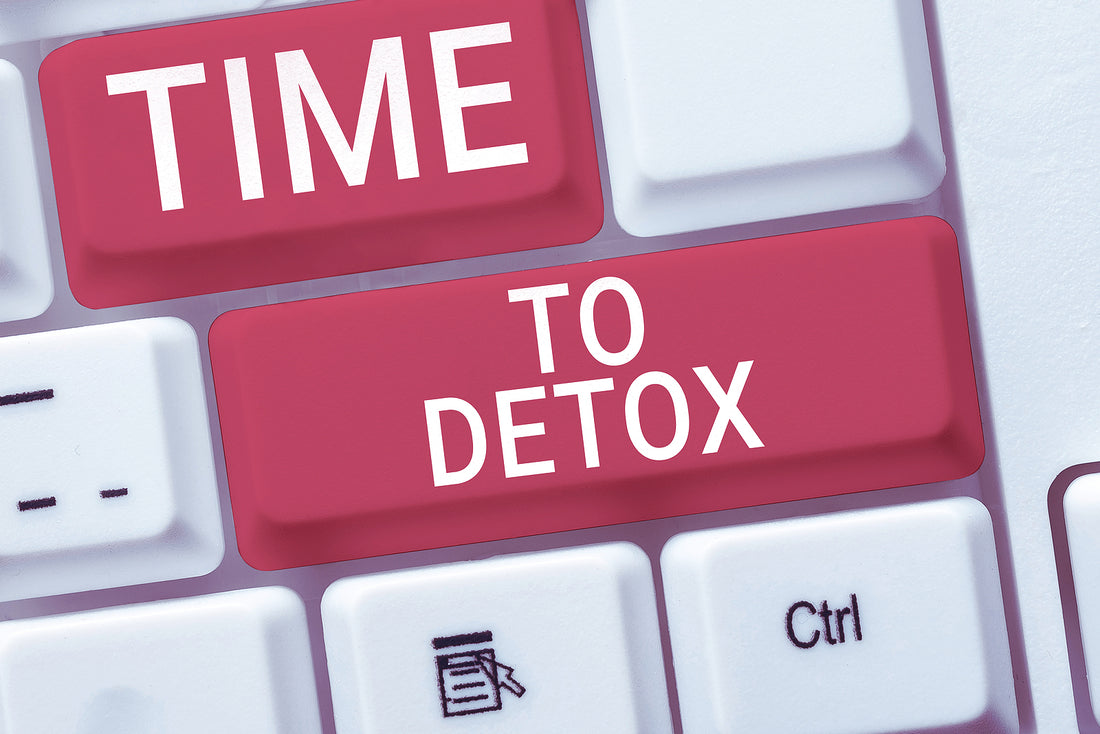Liver cleanse. Juice cleanse. Colon cleanse. Parasite cleanse. Sweat lodges, oxygen detoxes…the list goes on.
These are but a few of the many popular detoxing plans you’ll find out there today. Detoxification has been around for centuries with promises of cleansing the body of impurities and toxins (1). And recently, new cleansing trends such as the hyped “internal shower” – involving drinking a glass of water mixed with lemon and chia seeds - are now circulating the internet (2).
People typically turn to a detox regimen if they struggle with a slow digestive system, experience chronic acne flare-ups, are constantly drained of energy, want to kick cravings to the curb, or still want to drop those last few pounds.
But are these cleanses and detoxes really worth the hype? In this article, we’re going to explore what happens in your body when you participate in a cleanse or detox, the potential benefits, risks, and what an expert recommends.
What is a “detox” or cleanse?
The idea behind detoxing or cleansing is that by eating or drinking certain things, you get rid of any buildup of digestive sludge, toxins, or impurities in your body. This also usually involves eliminating certain foods from your diet, including grains, sugar, fatty meats, or other processed foods (3).
By sticking with water, herbal teas, fruits, vegetables, or smoothies for a set time, your body has a chance to take a break and rest. Some people who try a detox or cleanse may even claim to feel:
- More energy
- Better digestion (less constipation)
- Reduced headaches or fatigue
- Weight loss in some
That alone may be enough to make someone jump on the detox bandwagon. But did you know your body naturally detoxes every day?
That’s right --- your kidneys, liver, urinary tract, and sweat gland help eliminate unwanted elements from your body (7).
If that’s the case, do these cleanses take things up a notch?
Does a Detox Cleanse Actually Work?
Let’s dive a bit deeper into how these cleanses are intended to work. Say you decided to do a juice cleanse for 3 days. During this time, you would stop eating foods like bread, pasta, potatoes, dairy, beans, legumes, and sugary foods. You would drink smoothies of a variety of fruits, and the fiber in the fruit would help add more fiber and vitamins to your body. This can help stimulate your bowels and get things moving. The lack of carbohydrates and fats can help you lose a few pounds, and the lack of processed sugars can boost your mood and mental clarity!
All that doesn’t sound so bad, right? Keep in mind that while some of these regimens seem to work initially, they’re not a long-term solution for weight loss or overall vitality. Once you resume your normal eating habits, the weight often returns (5).
Scientifically, there isn’t enough convincing evidence to support detoxing and cleansing as a way to improve your overall health (4). Even so, it’s hard to argue with public opinion.
Potential Risks
What are the disadvantages of detox? Many of these methods embrace a “less is more “approach with restrictive diet recommendations. It might sound good, but there are some safety issues that are always worth keeping in mind:
- Diabetics: many of these popular detox plans have severe food restrictions, including eliminating carbohydrates. If you’re diabetic, you need to make sure your blood sugars stay balanced to avoid complications.
- Electrolyte imbalance: part of a cleanse often involves drinking lots of water or herbal teas. And while staying hydrated is important, drinking too much over a short period of time could negatively affect your electrolytes, leading to dehydration. Laxatives or diuretics can also contribute to this, which is why balance is important.
- Colon cleansing: If you have a sensitive digestive tract or have a history of heart or kidney disease, some of the advertised colon cleansings can be harsh and have negative side effects.
- Malnutrition: while most cleanses are only meant to last a few days, some people repeat them regularly. Since many of these regimens are so restrictive, there is a chance your body isn’t getting the proper nutrients it needs to stay healthy.
- Kidney issues: spinaches, beets, and other healthy greens contain a substance called oxalate. Too much oxalate in your system can make it hard for your kidneys to function properly (8), increasing your risk of developing problems down the road.
Bottom Line
In his signature program, The Metabolic Makeover (6), nutrition expert Dr. M. Kara explains how adopting a lifestyle of variety can help set you on the path toward a healthier, happier life.
By incorporating colorful fruits and vegetables, lean meats, nuts, seeds, and healing herbs, Dr. Kara maps out how to eat optimally to support all your natural body processes – including detoxification!
Trendy health fads might be fun at first, but if you’re not careful you may end up worse off than you started. Stick with proven systems and a “slow and steady wins the race” mentality. You’ll be glad you did.
Know someone who wants to lose weight and feel better? Check out The Metabolic Makeover Program today!
References & Disclaimer
1. https://www.mindbodygreen.com/articles/ancient-herbal-detoxes
2. https://www.health.com/news/internal-shower-drink
3. https://health.clevelandclinic.org/are-you-planning-a-cleanse-or-detox-read-this-first/
4. https://www.nccih.nih.gov/health/detoxes-and-cleanses-what-you-need-to-know
5. https://pubmed.ncbi.nlm.nih.gov/29124370/
6. https://karamd.com/collections/all-products
7. https://www.health.harvard.edu/staying-healthy/the-dubious-practice-of-detox
8. https://www.ncbi.nlm.nih.gov/pmc/articles/PMC6459305/
✝✝This noted statement is based on independent research and is not necessarily the opinion of the author
